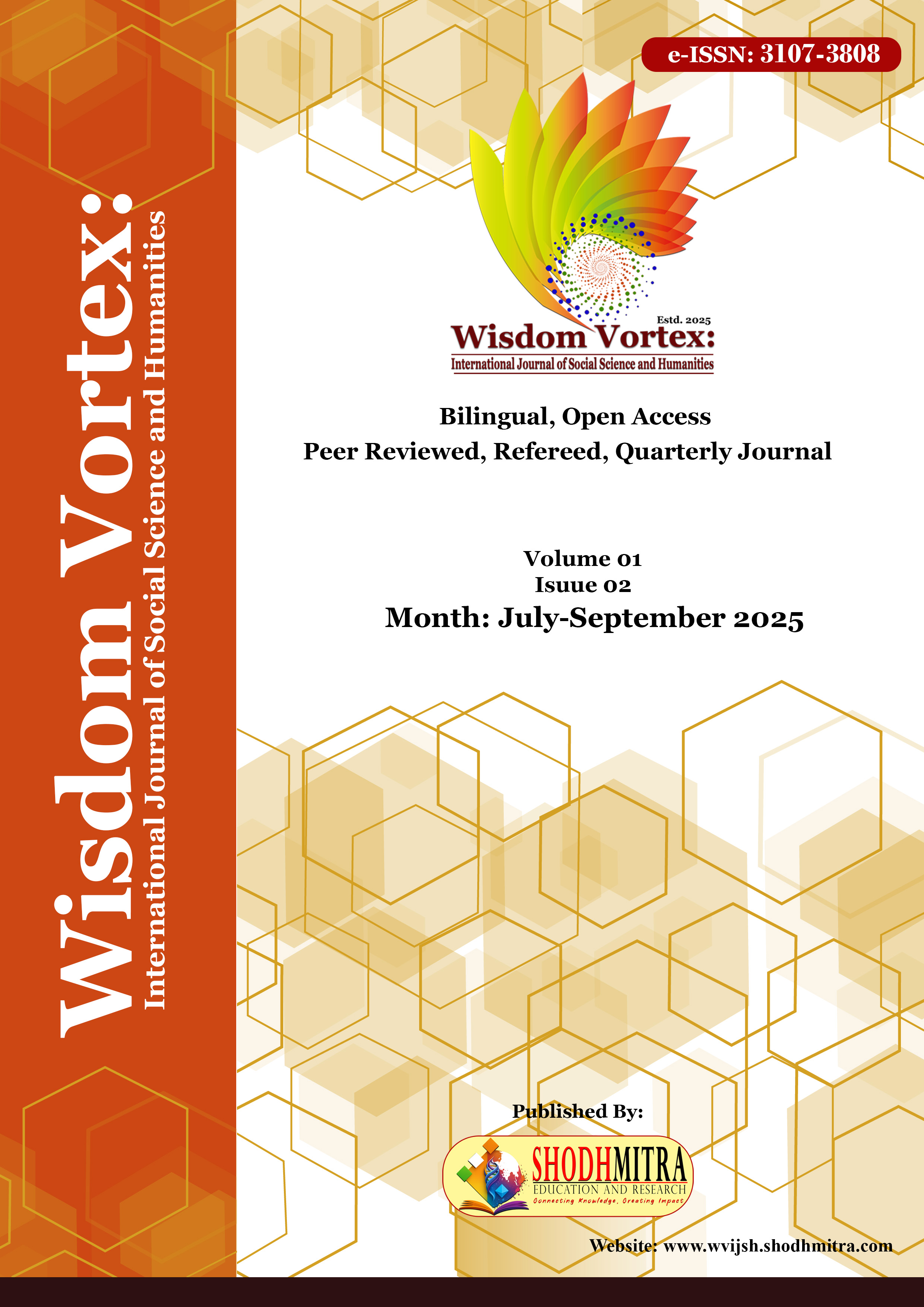The Impact of Volunteer Motivation (Intrinsic vs. Extrinsic) on Psychological Well-being of NGO Volunteers
DOI:
https://doi.org/10.64429/wvijsh.01.02.002Keywords:
Intrinsic Motivation, Extrinsic Motivation, Psychological Well-being, NGO Volunteers, Gender DifferencesAbstract
The present study investigates the impact of intrinsic and extrinsic motivation on the psychological well-being of NGO volunteers, with an additional focus on gender differences. A purposive sample of 80 volunteers from NGOs in Ranchi district was selected. Tools used included the Volunteer Motivation Inventory (based on Clary et al., 1998) and Ryff’s Psychological Well-being Scale (1989). Results from the t-test revealed that volunteers with intrinsic motivation scored significantly higher on psychological well-being compared to those with extrinsic motivation (p < 0.01). This finding aligns with Self-Determination Theory (Deci & Ryan, 1985), suggesting that intrinsic motivation—rooted in personal growth and altruism—enhances emotional health. However, the study found no significant difference in psychological well-being between male and female volunteers, indicating that gender may not significantly influence mental health outcomes in the context of volunteering. These findings underscore the importance for NGOs to foster intrinsic motivations through meaningful engagement, role alignment, and opportunities for personal fulfillment. The study contributes to existing literature by addressing a gap in developing country contexts and highlights the psychological benefits of value-driven volunteerism in NGO settings.

Additional Files
Published
Issue
Section
License
Copyright (c) 2025 T. K. Singh (Author)

This work is licensed under a Creative Commons Attribution 4.0 International License.
Authors publishing in Wisdom Vortex: International Journal of Social Science and Humanities retain full copyright and grant the journal a non-exclusive license to publish, distribute, and archive their work in print and electronic formats. Authors may share or reuse their work with proper citation to the original publication in this journal.
All works are licensed under the Creative Commons Attribution 4.0 International License (CC BY 4.0), allowing sharing, adaptation, and commercial use with proper attribution. Full copyright and licensing terms are available at Policies section.






